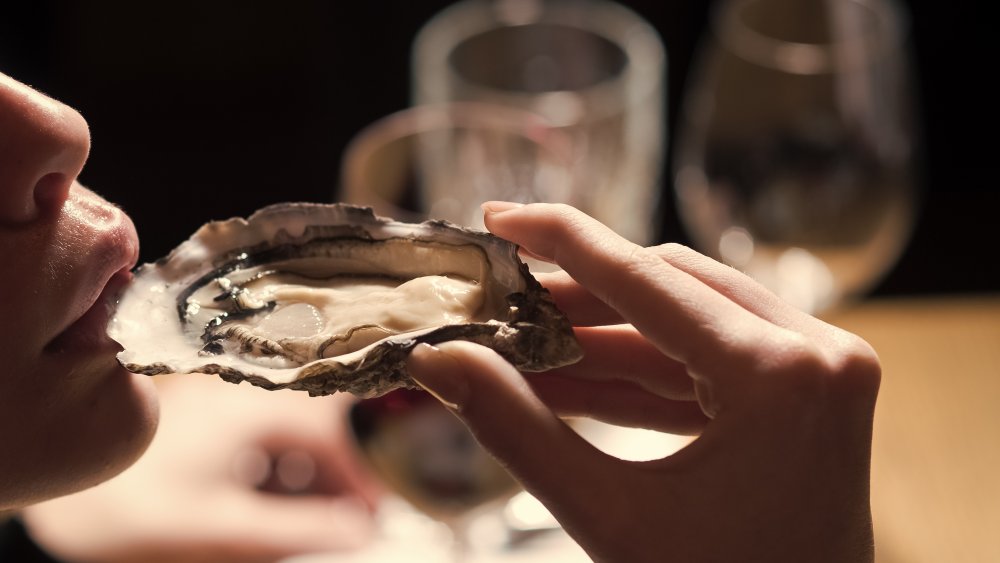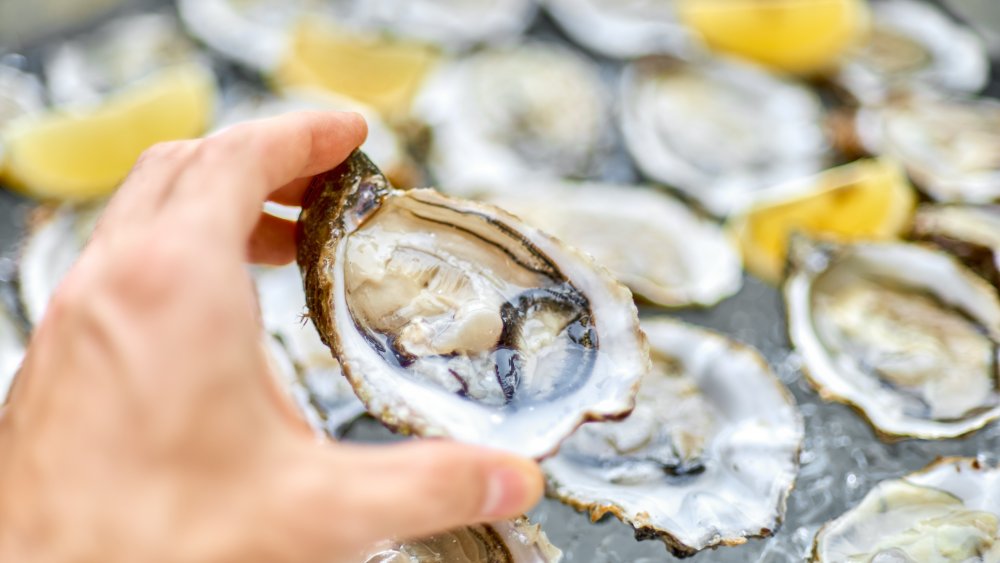The Real Reason You're Craving Oysters
Oh, oysters. Creamy, salty, suggestive and an utter delight to eat. Depending on where your oysters are from, flavors can vary from cucumber-y to coppery (via Business Insider) and they're naturally associated with a good time (in more ways than one). Oysters are easy to love and hard to deny but if you're craving the briny bivalves, your body may be trying to tell you something. If your brain is trying to zero in on where to get your next oyster fix, Prevention says it may actually mean you're craving salty, sugary foods because your sense of taste has dulled and that could be a sign you're zinc-deficient.
Healthline says zinc is a mineral that aids our body in fighting off infections and producing cells. It helps us heal injuries and even creates DNA. In its absence, undesirable side effects can set it. If thick hair, a sense of focus, and the ability to taste your food are important to you, mind your zinc intake. A deficiency can cause hair loss, lack of alertness, and a dulled sense of taste and smell. Prevention notes low levels of zinc can be linked to old age and stress. Ugh. So, basically we're all at risk? Luckily, if you're craving oysters due to a zinc deficiency, you can just... eat oysters.
Oysters provide more zinc than any other food
The Office of Dietary Supplements at the National Institutes of Health says our bodies do not store zinc so we have to seek it out daily through proper nutrition in the foods we eat or through supplements. The best way to handle a zinc deficiency is to increase the amount of zinc-rich foods you eat (via Healthline). Of all foods, oysters contain the most zinc per serving, far surpassing other sources like beef, crab, chicken, and beans. According to In a Halfshell, just six medium-sized raw oysters contain 220 percent of your recommended daily intake of zinc. Of course, if you believe the long-debated claim that oysters are an aphrodisiac, your enjoyment will be twofold.
Even though the FDA maintains that "no scientific evidence" supports the claim that oysters are aphrodisiacs, Houston Press cites a 2005 study by American and Italian scientists who discovered oysters contain two amino acids that, when injected into male and female rats, increased levels of testosterone and progesterone respectively. Those two hormones increase libido, leading the scientists to conclude oysters are indeed aphrodisiacs. Guess it really is time to indulge those cravings, then. We'll see you at the oyster bar!

